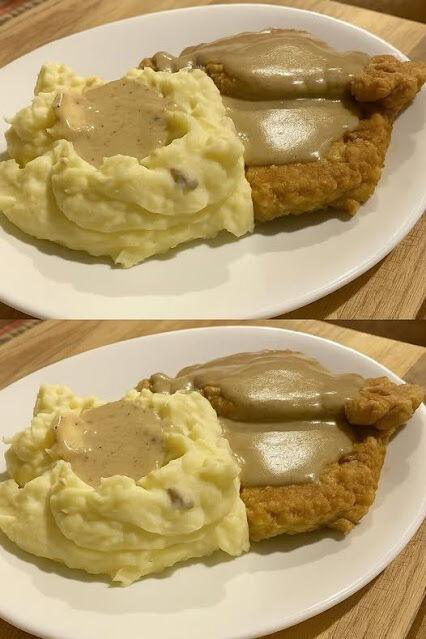The Secret to Perfect Mashed Potatoes (Hint: Don’t Boil Them) Mashed potatoes are the ultimate cozy classic—rich, fluffy, and completely satisfying. But let’s be honest: not all mashed potatoes are created equal. If your spuds often turn out runny, bland, or strangely gummy, the culprit might be your cooking method. Here’s the truth: boiling your potatoes may be ruining them. Let’s explore why—and what to do instead for flawless mashed potatoes every time. Why You Should Stop Boiling Your Potatoes 1. They Get Waterlogged Boiling causes potatoes to absorb excess water, diluting their natural starch. That water doesn’t…
Mashed potatoes are the ultimate cozy classic—rich, fluffy, and completely satisfying. But let’s be honest: not all mashed potatoes are created equal. If your spuds often turn out runny, bland, or strangely gummy, the culprit might be your cooking method.
Here’s the truth: boiling your potatoes may be ruining them. Let’s explore why—and what to do instead for flawless mashed potatoes every time.
Why You Should Stop Boiling Your Potatoes
1. They Get Waterlogged
Boiling causes potatoes to absorb excess water, diluting their natural starch. That water doesn’t just disappear—it seeps into your mash, leading to a loose, soupy texture and increasing the risk of overmixing.
2. You Lose Flavor
Boiling leaches nutrients and natural sugars out into the water, leaving behind a dull, flavorless base. No wonder we end up drowning them in butter or salt just to make them taste good.
3. Uneven Texture
Boiling can cook potato pieces at different rates—some turn to mush while others stay firm. That inconsistency makes smooth, creamy mash harder to achieve.
✅ The Better Way: Steam or Bake
Skip the boiling pot and try one of these two methods that preserve flavor, texture, and nutrition.
Method 1: Steam for Smooth, Creamy Results
Steaming cooks potatoes more gently and evenly, without soaking them. Peel and cube your potatoes, place them in a steamer basket over simmering water, and steam until fork-tender. Then mash them with warm butter and cream for ultra-silky results.
Method 2: Bake for Richer, Deeper Flavor
Baking potatoes whole concentrates their flavor and keeps them from absorbing extra moisture. Once they’re soft, cut them open and scoop out the fluffy insides. Mash with your add-ins for a more savory, luxurious taste.
Pro Tips for Elevating Your Mash
- Pick the Right Potato: Use starchy Russets for fluffiness or Yukon Golds for a naturally buttery texture.
- Warm It Up: Heat your cream, milk, or butter before mixing it in. Cold dairy makes the mash seize and stiffen.
- Mash Gently: Use a ricer or hand masher. Avoid electric mixers—they overwork the starch and make the texture gluey.
- Season Smart: Salt the potatoes while steaming or baking, and taste as you go. A dash of garlic, chives, or even a hint of nutmeg can add depth.
Final Thoughts
Great mashed potatoes aren’t complicated—but they do benefit from a little care and better technique. Steaming or baking instead of boiling gives you more flavor, better texture, and fewer problems.
So the next time mashed potatoes are on the menu, ditch the boiling water and give your spuds the steam (or oven) treatment. You’ll never go back.

